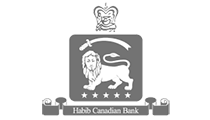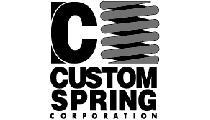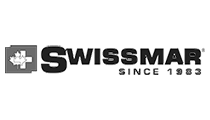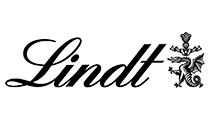info suisse Spring 2016
Accounting / Bookkeeping | Switzerland-Canada Comparisons
Accounting / Bookkeeping | Switzerland-Canada Comparisons
May 2016
Where do you pay higher taxes in Toronto or in Zurich?
(Kurt Schläpfer)
In this article we only consider the taxes on income, financial assets and property (direct taxes), but not those on goods and services (indirect taxes). In principle, there are four types of direct taxes: the income tax, the wealth tax, the capital gain tax and the property tax. There are considerable differences between Canada and Switzerland in the way how these taxes are levied and in the resulting tax amount.


Income tax
Canada levies only federal and provincial income taxes, while Switzerland has additionally a tax on municipal level. Both countries impose a progressive taxation on income. A measure for the progression is the tax amount calculated as a percentage of the income. In the income range from 50,000 to a 1 million the tax rate varies in Ontario between 17% and 47%, in Switzerland between 10% and 38%.
Moreover, the tax rate depends on the province (Canada) or canton (Switzerland) of residence. In Canada the differences are moderate, as the highest taxes are only about one third higher than the lowest taxes. In Switzerland these differences are more dramatic. For instance, for a net income of CHF 100,000 the tax is 7.0% in Zug and 23.4% in Geneva.
Property tax
In Toronto, the property tax is levied at the municipal level and calculated as a percentage of the property value. In Switzerland, owners of a self-occupied house property have to pay tax on the theoretical rental value of their property (in Switzerland called "Eigenmietwert"), as if they were actually receiving this rent. This fictitious rental income is added to the taxable income – a unique system in Europe.
In the following, the two systems are compared, based on an assessed property value of CHF/CAD 700,000:
- In Toronto, the property tax for residential homes is 0.07712% resulting in a tax amount of CAD 5,398
- In Zurich, the rental value of a property of CHF 700,000 is 3.5%, which equals CHF 24,500. From this amount 30% are taxfree. From the taxable amount of CHF 17,150 20% are deductible for maintenance costs. Hence, the rental value added to the taxable income is CHF 13,720. In case of a net income of CHF 150,000, this leads to a tax increase of CHF 4,479.
Canada does not impose a wealth tax. In Switzerland any kind of assets such as securities and valuables (for instance jewellery or works of art) is subject to a wealth tax. Depts including mortgages are deductible. The wealth tax for values below 500,000 is between 0.1% and 0.5% depending on the canton. For assets exceeding 1 million it can go up to 0.7%.
Capital gain tax
In both countries, capital gains are taxable as part of the income tax. In Canada, 50% of the capital gain realized has to be added to the net income while, in Switzerland, the full amount of capital gain is taxable.
Tax comparison between Toronto and Zurich
To illustrate the tax differences between Toronto and Zurich, we choose a very simple example, i.e. a married couple with one income owning a self-occupied house (see table). Moreover, we look only at one income per family, because double incomes are differently taxed in comparison to single incomes. We also assume that the property is not mortgaged (which is only relevant in Switzerland).

On an international scale, taxes in Switzerland are relatively moderate and distinctly lower than in Canada, but with considerable differences between the 26 cantons and the approximately 2,300 municipalities. Further taxation authorities in Switzerland are the three national churches, i.e. Roman Catholics, Christian Catholics and Protestants. (Interestingly, also companies pay church taxes, although a company cannot have a religious affiliation.) A particular situation in Canada is that employers are required to deduct the expected income tax of their employees as withholding tax at source. This tax is sent on behalf of the employee to the Canada Revenue Agency (CRA). From the point of view of this author the withholding tax system is a clear advantage for the taxpayer, as he basically receives a "tax-free income" allowing for better planning of his current expenses.
Lump-sum taxation for foreigners in Switzerland
Foreign individuals who take up residence in Switzerland may choose to be taxed under a special regime called "lump-sum taxation". The basic prerequisite for lump-sum taxation is that the individual does not pursue an occupation in Switzerland. A gainful activity carried out abroad is compatible with the lump-sum taxation, provided that a true residence is maintained in Switzerland. The main characteristic of the lump-sum taxation is that the taxable amount is calculated on the basis of the cost of living.
Let us look at an example illustrating the difference between the lump-sum taxation and the regular taxation: We choose a professional athlete who has an annual income of CHF 10 million and financial assets of CHF 30 million. If this man had his residence in the city of Bern, he would pay regularly about CHF 4.3 million of taxes per year. Let us now assume that this sportsman lives in a flat for which he pays a monthly rent of CHF 5,000. For the lump-sum taxation the sevenfold value of the annual rent is taken as a base (but at least a value of CHF 400,000). In this case, the annual taxes in the city of Bern amount to only CHF 154,800. There are many famous foreigners who benefit from this regulation, for example, the Formula 1 drivers Michael Schumacher and Sebastian Vettel, or until recently the richest foreigner in Switzerland, the IKEA founder Ingvar Kamprad whose wealth is estimated at USD 23 billion. All in all more than 5,600 foreigners benefit from this regulation.
In Switzerland, the lump-sum taxation is a recurrent subject of political debate. Opponents argue that the lump-sum taxation undermines the tax morality and that there is no reason to privilege wealthy foreigners. In the last years, the lump-sum taxation was abolished in six cantons. But none of these cantons had a significant number of lump-sum taxpayers. Some other cantons, for instance the canton of Berne where many wealthy foreigners are living, have rejected to abolish the lump-sum taxation.
In 2012, a citizen-initiated referendum entitled "Stop tax privileges for millionnaires" was launched to abolish the lump-sum taxation at federal level. The popular vote on this referendum was held on 30 November 2014, and it was rejected with almost 60 percent of all votes.

















